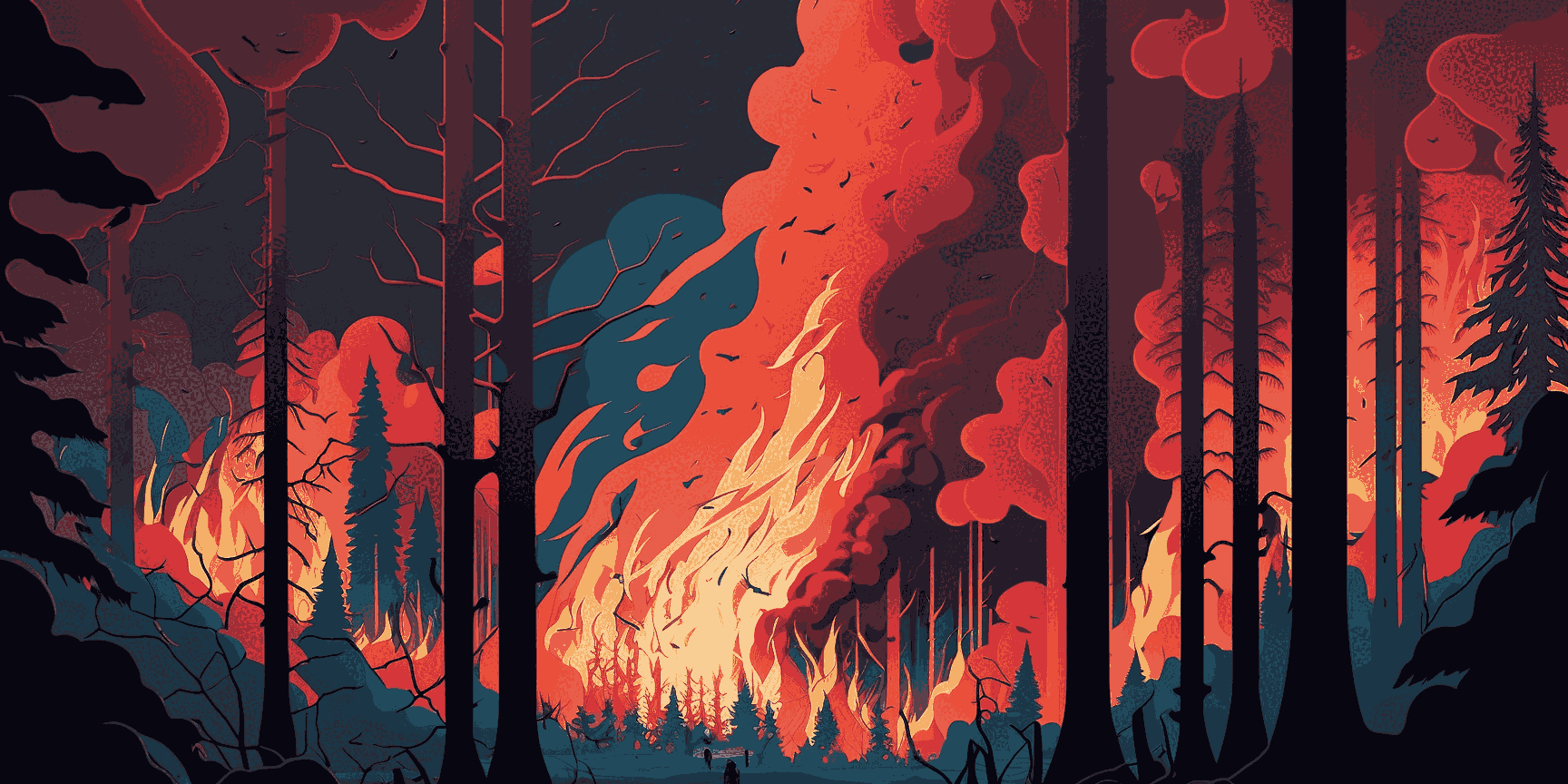The Wildfires: How Rising Temperatures And Drier Conditions Are Fueling Larger, More Destructive Blazes
Are you concerned about the increase in area burned by wildfires around the world? Climate change is causing more frequent and severe fires, threatening our environment and communities. Learn more about this urgent issue in our in-depth article.
Table Of Content
- Introduction
- Factors Contributing To The Increase In Area Burned
- Consequences Of Wildfires For The Environment And Communities
- Mitigating The Effects Of Wildfires
- Conclusion
- Cause
- Is Caused By
Introduction
Wildfires are a natural part of many ecosystems, but in recent years, they have become more frequent and severe due to the effects of climate change. The area burned by wildfires around the world has increased in recent decades, and this trend is expected to continue as temperatures rise and droughts become more common.
This article explores the impact of climate change on wildfires, including the factors that contribute to the increase in area burned and the consequences for the environment and human communities. We also look at some of the measures being taken to mitigate the effects of wildfires and protect people and nature.
Factors Contributing To The Increase In Area Burned
One of the main factors contributing to the increase in area burned by wildfires is rising temperatures. As the planet warms, heatwaves become more frequent and intense, drying out vegetation and making it more susceptible to ignition. In addition, higher temperatures increase the likelihood of lightning strikes, which can ignite fires in dry areas.
Another factor is the increase in drought conditions, which are often associated with rising temperatures. Droughts create a tinderbox-like environment where even a small spark can set off a large blaze. Dry vegetation, combined with low humidity and high winds, creates the ideal conditions for fires to spread quickly and uncontrollably.
Human activity is also a significant factor in the increase in area burned by wildfires. Development and urbanization in wildfire-prone areas can increase the risk of fires, as can the use of flammable building materials and improper fire management practices. In some cases, wildfires are deliberately set by humans, either accidentally or intentionally.
Consequences Of Wildfires For The Environment And Communities
The impact of wildfires on the environment and human communities can be devastating. In addition to the loss of life and property, wildfires can cause significant ecological damage. They can destroy habitats and disrupt ecosystems, leading to the loss of biodiversity and the degradation of soil and water resources.
Wildfires also release large amounts of carbon dioxide and other greenhouse gases, contributing to climate change. In addition, the smoke and ash from wildfires can have serious health effects, particularly for people with respiratory problems.
In recent years, wildfires have caused significant economic losses, particularly in regions that rely on tourism and outdoor recreation. They can also disrupt transportation and infrastructure, leading to further economic damage.
Mitigating The Effects Of Wildfires
Mitigating the effects of wildfires requires a multi-faceted approach. One key strategy is to reduce the risk of fires in the first place by managing vegetation, controlling burnable materials, and enforcing fire safety regulations.
Another strategy is to improve fire suppression and management techniques. This can include the use of firebreaks, controlled burns, and firefighting technology such as aerial water drops and fire retardant.
In addition, communities can take steps to prepare for wildfires, such as creating evacuation plans and ensuring that buildings are constructed with fire-resistant materials. Education campaigns can also help to raise awareness of the risks of wildfires and promote responsible behavior to prevent them from starting.
Conclusion
The increase in area burned by wildfires due to climate change is a significant threat to the environment and human communities around the world. Rising temperatures, drought conditions, and human activity are all contributing factors






